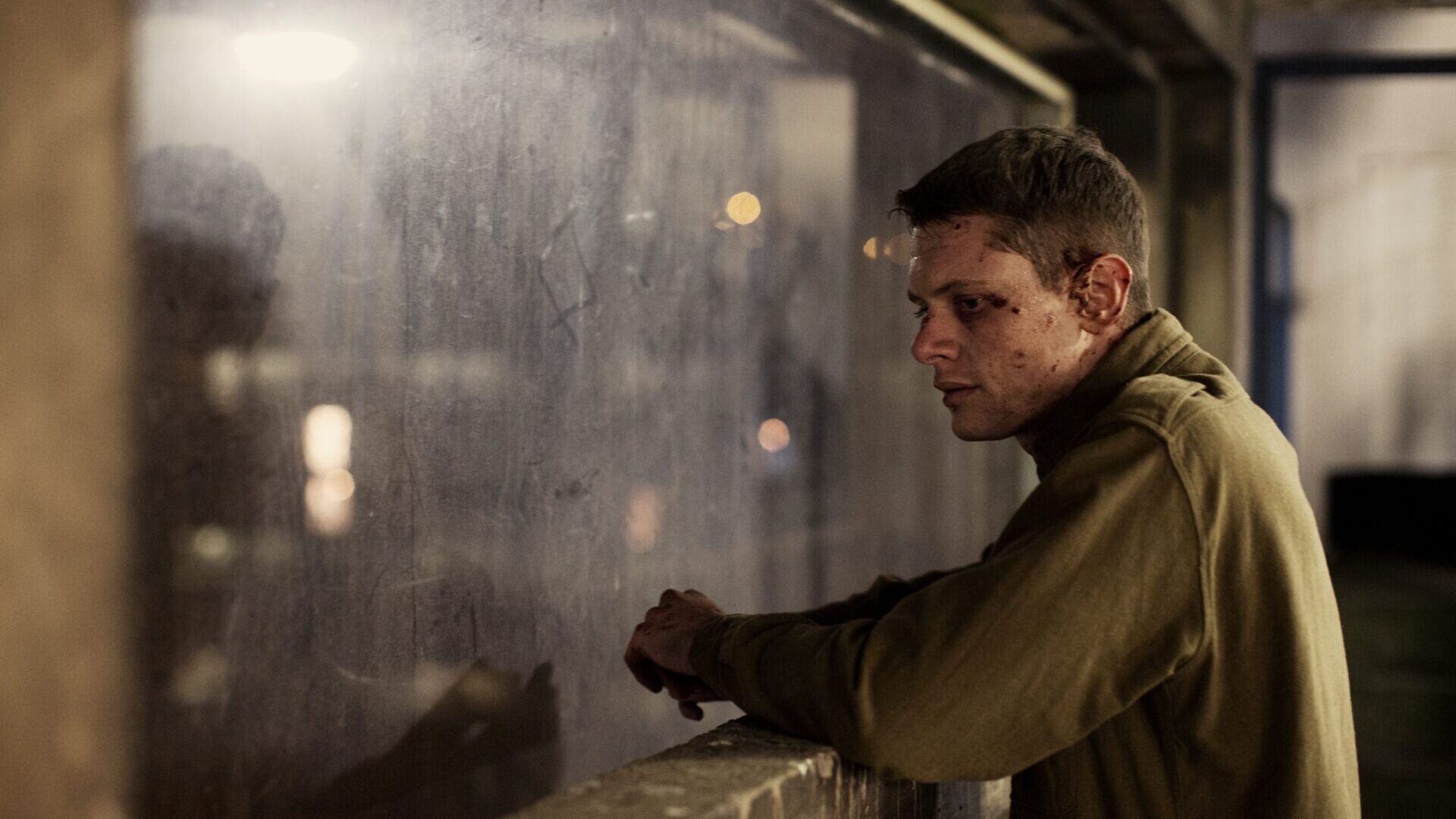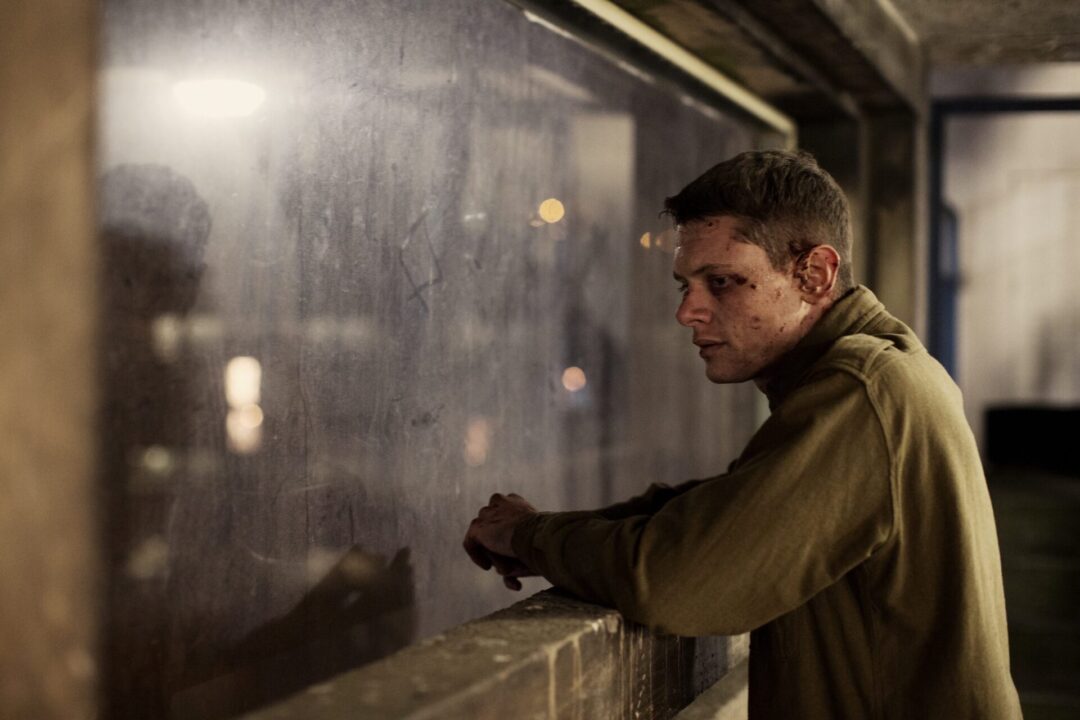If you look closely, 2014 was a banner year for the war movie. Bradley Cooper single-handedly turned American Sniper into a national phenomenon to (eventually) become the highest grossing film of the year– the first non-franchise film to do so since Saving Private Ryan, coincidentally. Early Oscar contenders, Fury and Unbroken rallied in a cool sum for ‘prestige’ pictures behind “Brangelina’s” respective star power. The Imitation Game found pathos in the unsung genius of Alan Turing to find well-deserved critical and audience success. Even the daffy The Monuments Men found a lot of box office legs in the early months of the year.’71, which debuted last year before any of these films were released at last year’s Berlin International Film Festival, finds its way into American theaters this weekend and it stands as a riveting independent counterpart to its studio companions – a showcase for a war story both rather simple but effective during a conflict that may not find itself in international history books.
The film follows a young soldier Gary Hook (Jack O’Connell, of the previously mentioned Unbroken) who is left disoriented and abandoned by his unit during a violent Belfast Riot in the titular year of 1971. The riot occurs at the beginning years of the Troubles, a three-decade era of violence between Northern Ireland’s Irish nationalist and the country’s unionists, which included British and Protestant citizens. Taking place over the course of around 24 hours, the film follows Gary Hook’s interactions with the civilians and soldiers from both sides of the conflict and the violence that is surrounding them.
It is rather vibrant for a war film; rich color contrasts its dark subject matter.
To begin, Jack O’Connell is going to be a big star and you feel it in’71. He carried the weight of the Angelina Jolie’s heavy-handed Unbroken direction on his shoulders and his under-seen turn in the prison drama Starred Up showed a ruggedness reminiscent of a British Ryan Gosling. He’s the broody everyman– somebody who observes the cinematic environment as opposed to eating it up. He can build drama just through his presence and that is showcased in ’71. He has the understanding to simply inhabit the environment and guide the film– never steal the show or demand the center of the conflict. He’s a movie star in the making, similar to Josh Hartnett in Black Hawk Down (which Cinemacy contributor H. Nelson Tracy deftly compared to ’71 in his Sundance review of the film). His stardom will be determined, but in a war film so reliant on character over heavy action, he holds his own.
The film itself is visually quite impressive as well. It is rather vibrant for a war film; rich color contrasts its dark subject matter. The realism is rewarding and rather brutal – very opposite of the studio-movie war zone O’Connell inhabited in Unbroken. It’s also swift in its pace which make for a very tense, involving watch. The momentum from the film’s beginning won’t rock you, but it involves you enough to really feel along Gary’s side.
It is a terrific war story, though maybe not a revelatory one. It’s not a film about triumph, but about survival. Unbroken was a survival picture on the surface, but it ended on a note of American triumph. ’71 portrays a conflict that– has it ever actually? – depicts no triumph for either side, but rather the effect war has on the individual.Overall, ’71 is refreshing, as the film does not have the same need for significance that the Hollywood system puts into war cinema.
Jasper Bernbaum
Jasper is a contributing writer for Cinemacy. He combines his love of music with his visual eye into a passion for live photography. He holds a BFA in Film Production from Chapman University and is an avid filmmaker, watcher, and all around cultural adventurer.


